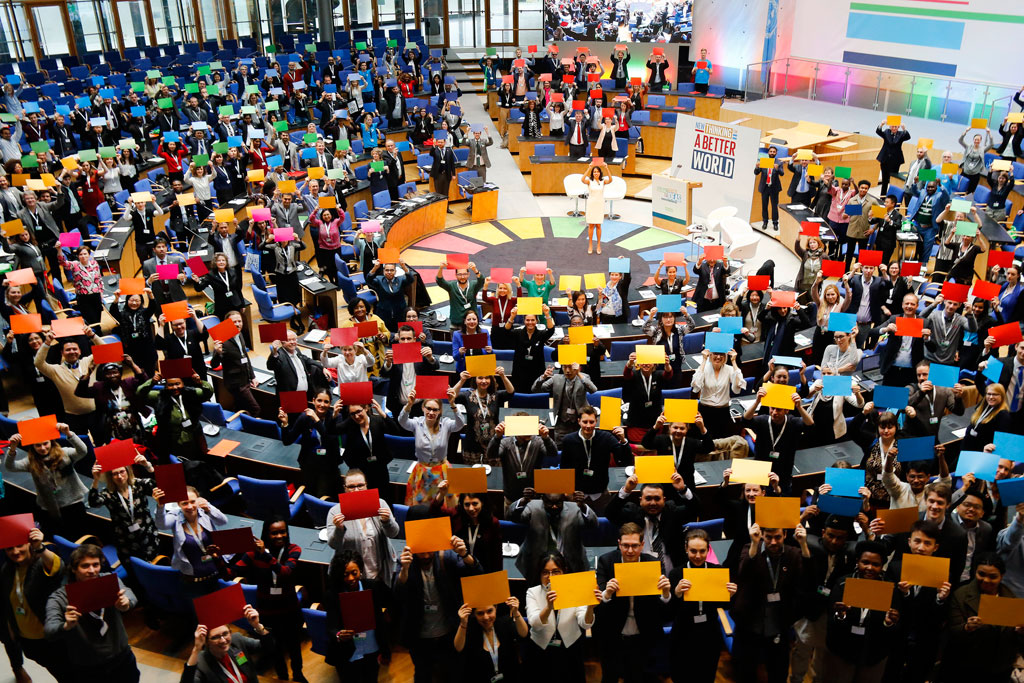Global development in the eyes of gamers


The UN celebrated the Global Festival of Ideas for Sustainable Development at the World Conference Center (WCC) in Bonn, Germany. This conference aimed to bring a new way of thinking to addressing some of the world’s most complex development challenges and invited gamers, technology experts and activists to provide their input.
“The Global Festival of Ideas [allowed] participants a unique opportunity to chart new thinking on how to overcome seemingly conflicting, and contradictory, objectives.”
The Festival is hosted by the UN SDG Action Campaign in partnership with the Overseas Development Institute (ODI) with the support of the German Government.
The idea was to transform participants from passive delegates IGNORE INTO active players so that they could focus in three development challenges:
1. Inequality and exclusion in a rapidly globalizing world.
2. How to promote economic growth and prosperity with environmental sustainability.
3. Protect individuals and communities caught up in shocks and disruptors.
Among the participants was Ryan Hooks, manager of a software company called Huxley, who showed off his hands-free gardening app. “It’s an Artificial Intelligence AI and augmented reality for plants. Greenhouses that use hydroponics to circulate the water are very complex systems and it’s hard to scale water efficient food solutions. I’ve found that augmented reality and AI can be really useful for reducing labor cost,” he told UN News.
This app can make it the use of hydroponics more efficient as it knows what type of plant it is, what percentage its health and when to pick and pack it “so people can have hands-free augmented gardening,” he explained.
Hydroponic is a method of growing plants without soil and uses 95% less water to grow plants.
Participants were also part of the Hive Mind game, in which they played for a hypothetical country, planning policies and convincing other player to join forces with them.
Organizers said that the game, which focuses on the SDGs and the 2030 Agenda, “reveals the tough choices and trade-offs that might have be made along the road to sustainable development for all over the next 13 years.”
For example, Tom Juntunen of the U Begin company played for the Goal 9 which focusses on building resilient infrastructure, promoting inclusive and sustainable industrialization and foster innovation. He tried to convince the other players to support the policies.
“There’s a lot of negotiations, it’s a very robust simulation of real life dynamics with policy negotiation. Everyone has what’s important to them and what’s not important. In playing the game, you experience the parallel of that in a virtual environment. It is challenging as it is in real life,” he told UN News.
For Christina Gallach, the UN Under-Secretary-General for Communications and Public Information, “the more we communicate about the SDGs and make people aware of the agenda, the more the governments we will be accountable and will ensure that it is implemented.”
“We have to make the world aware of this […] agenda that is definitely going to transform the planet and that is going to ensure that no one is left behind,” she concluded.
LatinAmerican Post





